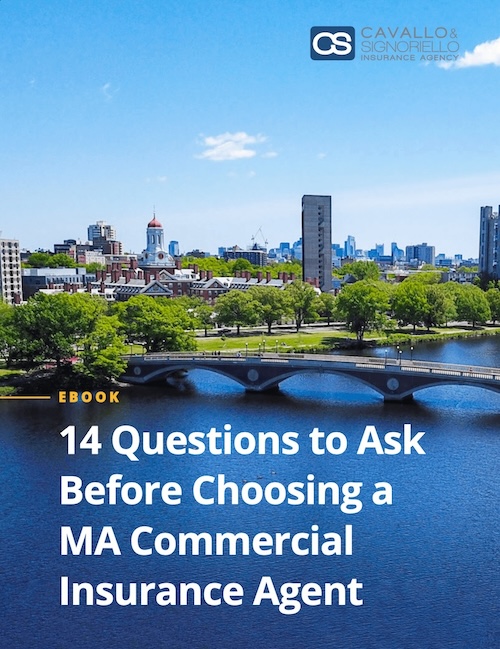What Is Personal Liability Insurance and What Does It Cover?

While it may not be the first thing on your mind when it comes to insurance, personal liability coverage is an important part of any comprehensive insurance plan. Accidents can happen at any time, and having personal liability insurance can safeguard you from the resulting financial and legal repercussions.
In this blog post, we’ll explore the basics of personal liability insurance, including how much coverage you should have, as well as what is and isn’t covered by a personal liability policy.
What Is Personal Liability Insurance?
How Much Personal Liability Coverage Should You Have?
How Much Does Home Insurance Personal Liability Cost?
How Do Personal Liability Insurance Policies Work Together?
What Does Personal Liability Insurance Cover?
What Does Personal Liability Insurance Not Cover?
Protect Yourself With Personal Liability Insurance
Personal Liability Coverage FAQs
What Is Personal Liability Insurance?
Personal liability insurance provides protection for you whenever you are found legally responsible for causing injury to another person or damaging someone else’s property. It can help cover the cost of damages or injuries you are held liable for, as well as legal expenses if you are sued.
This type of insurance can be especially important if you have significant assets or income that could be at risk in the event of a lawsuit. Personal liability insurance can also provide peace of mind, knowing that you have coverage in case of an unexpected accident or mishap.
How Much Personal Liability Coverage Should You Have?
The amount of personal liability insurance that you should carry depends on your individual circumstances and needs. Some factors to consider when determining how much coverage you should have include:
- The value of your assets
- Your income
- The level of risk you’re exposed to in your daily life
If you have a swimming pool, trampoline, or other attractive nuisances, you may benefit from more substantial liability coverage. Keep in mind that you may be able to get better insurance rates if you take proactive precautions, such as putting fencing and a locking gate around your outdoor pool, or securing your trampoline with a net.
If you have homeowners or renters insurance, you most likely have at least a minimum amount of personal liability coverage. Homeowners and renters policies generally offer three different limits of coverage: $100,000, $300,000, and $500,000. If you need liability coverage beyond the limits of your primary policy, you may benefit from an umbrella policy, which extends your coverage limits to the amount you need.
It’s a good idea to review your insurance coverage regularly, particularly if you experience any significant life changes that could affect your need for coverage. It’s also recommended that you consult with an insurance professional, like the experts at C&S, who can help assess your needs and determine the appropriate level of coverage for you.
How Much Does Home Insurance Personal Liability Cost?
Personal liability insurance is one of the least expensive parts of any homeowners insurance policy. It typically costs $8 to $10 per year for every $100,000 in coverage. While most homeowners insurance policies offer between $100,000 and $500,000 in personal liability coverage, you can opt for liability limits as high as $1 million.
The cost of liability insurance can vary depending on a number of factors, including:
- The type of coverage you need
- The amount of coverage you require
- The level of risk you are exposed to
- Your geographic location
- Your age
- Your occupation
- Your claims history
Regardless of these factors, increasing your personal liability coverage — either through an umbrella policy or through an existing homeowners or renters insurance policy — is a cost-effective step you can take to protect your financial well-being.
How Do Personal Liability Insurance Policies Work Together?
Personal liability insurance policies typically work together to provide comprehensive coverage for an individual. For example, you may have a personal liability policy through your homeowners insurance, which covers incidents that occur on your property. You may also have personal liability coverage through your auto insurance, which covers incidents that occur while you are driving.
Additionally, you may have a personal umbrella policy, which provides additional liability coverage beyond the limits of your other policies. These different types of policies can work together to provide a layer of protection for you when an accident or incident occurs that causes injury or damage to another person or their property.
When you require more than the standard high-end limit offered by your homeowners or renters insurance policy, consider umbrella coverage. An umbrella policy provides an additional layer of protection beyond your existing insurance policies. It can help cover the costs of damages or injuries that exceed the limits of your auto, home, or other personal liability insurance policies.
It can also provide coverage for certain types of claims that might not be covered by your other policies, such as defamation or false arrest. Umbrella insurance is a useful option for individuals who want to have additional protection against potential liability claims.
What Does Personal Liability Insurance Cover?
It’s important to understand what is covered under your personal liability insurance policy because this type of coverage can provide financial protection in the event that you are sued or held legally responsible for damages or injuries to someone else. Without this knowledge, you may not be fully prepared when an incident occurs.
Personal liability insurance can provide coverage for a wide range of incidents that result in injury or damage to another person or their property. Coverages typically include:
- Medical bills
- Legal fees
- Accidental damages
- Lost wages
- Pain and suffering
- Death benefits
Here are a few specific examples of what personal liability insurance may cover:
- Accidents that occur on your property, such as a visitor tripping and falling on your icy front steps
- Injuries that you cause to someone else, such as if you accidentally hit someone with a ball while playing sports
- Damage that you cause to someone else’s property, such as if you accidentally dent someone’s car while backing out of a parking space
- Legal expenses if you are sued as a result of an incident
- Injuries caused by a member of your household or your pets
What Does Personal Liability Insurance Not Cover?
It’s important to note that personal liability insurance typically does not cover intentional acts or criminal behavior. It is also crucial that you read the fine print of your policy to understand exactly what is and is not covered.
Here are some examples of what personal liability insurance may not cover:
- Injuries or damages that you intentionally cause to someone else or their property
- Damages or injuries that result from illegal activities or criminal behavior
- Business-related liabilities, unless you have a separate business liability policy
- Professional services that you perform, unless you have a separate professional liability insurance policy
- Damage to your own property, unless it is covered under a separate policy, such as a home or auto insurance policy
- Injuries or damages sustained by you or family members in your home
It’s always a good idea to carefully review your insurance policy and discuss any questions or concerns with your provider.
Protect Yourself With Personal Liability Insurance
Personal liability insurance is an essential type of coverage to consider for anyone who wants to protect themselves and their assets from financial loss in the event of an accident or mishap. It can provide protection for the cost of damages or injuries that you are held liable for, as well as legal expenses if you are sued.
If you have any questions or would like to learn more about your coverage options, don’t hesitate to reach out to the agents at C&S. We can help you assess your needs and find a policy that fits your budget and provides the protection you need. Safeguard yourself and your assets today by considering personal liability insurance.
Personal Liability Coverage FAQs
Does homeowners insurance cover personal injury?
Homeowners insurance policies typically provide coverage for personal injury under the liability portion of the policy. However, depending on factors such as the risk level of your property, you may benefit from supplemental personal liability coverage through an umbrella policy.
Is personal liability the same as umbrella?
Personal liability insurance and umbrella insurance are similar in that they both provide additional liability coverage beyond the limits of your other insurance policies. However, personal liability insurance is typically included in other insurance policies, such as your homeowners or auto insurance, while umbrella insurance is a separate policy that provides additional liability protection.
Why do you need liability insurance?
Liability insurance is essential because it provides protection for you when you are found legally responsible for causing injury to another person or damaging someone else’s property. If you are sued as a result of an incident, liability insurance can help cover the cost of damages or injuries that you are held liable for, as well as legal expenses.
What happens if I have liability insurance and someone hits me?
If you have liability insurance and someone hits you, your policy will typically not cover damages to your own vehicle or injuries that you sustain as a result of the accident. However, if you are in an accident and you are not at fault, the other driver’s liability insurance should cover any damages to your vehicle and any injuries that you sustain as a result of the accident. If the other driver does not have liability insurance or does not have enough coverage to pay for your damages, you may be able to file a claim with your own insurance company if you have uninsured/underinsured motorist coverage.
Is liability insurance full coverage?
No, liability insurance is not considered to be full coverage because it does not provide protection for damages to your own vehicle or injuries you experience as a result of an accident. A full coverage policy may include liability coverages, as well as other types of coverage such as collision and comprehensive.

